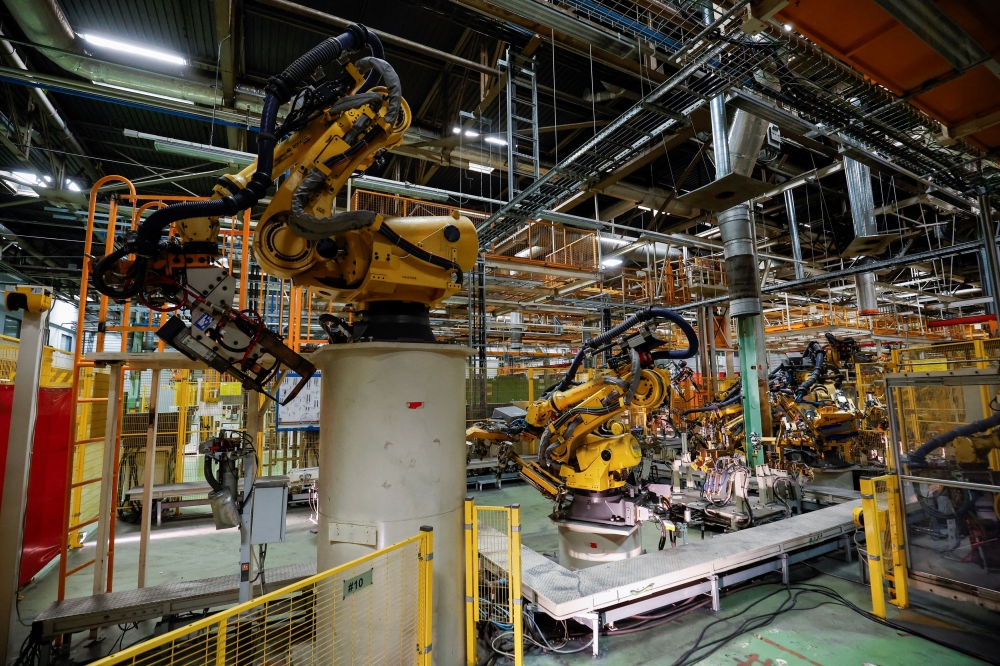MADRID, April 19 — Chinese carmaker Chery signed a deal today to produce mainly electric vehicles in Spain, as Beijing’s auto sector pushes ahead with plans to expand into Europe despite growing competition concerns.
It is the second Chinese carmaker to set up in Europe after China’s top electric carmaker BYD said in December it would build a factory in Hungary.
Chery’s move into Spain comes as the European Union is investigating whether Chinese electric vehicle makers benefit from unfair government subsidies.
The Chinese firm and its Spanish partner Ebro-EV Motors signed a joint venture agreement today to assemble cars at a factory that Japanese carmaker Nissan shut down in December 2021 and that once employed nearly 3,000 people.
Chery, which is known for its cheap cars, is the junior partner in the venture.
The two firms said they expect to create 1,250 jobs and produce around 150,000 vehicles a year by 2029 at the site, a figure which could rise further.
Under the agreement sealed Friday in the presence of Spanish Prime minister Pedro Sanchez, Chery will start to assemble the internal combustion engine and electric versions of its Omoda model in the coming months, using the plant’s existing infrastructure.
This production will be supplemented from the fourth quarter of 2024 by electric SUVs marketed under the Ebro brand.
This project “will result in the creation of wealth and, above all, in the creation and maintenance of jobs,” Sanchez said, adding it is “a symbol of the process of reindustrialisation” under way “throughout Spain”.
Founded in 1997, Chery is a state-owned company which says it sold 1.9 million cars in 2023. It rose to popularity in China about 15 years ago with its small petrol-fuelled city cars aimed at the local market.
It has since moved into the electric vehicle (EV) market although it is not one of China’s best-known players, even if it claims to be its biggest vehicle exporter.

‘Artificially low’ prices
Spain is Europe’s second-largest car producing nation after Germany. Last year, 1.87 million were assembled in Spain, according to the European Automobile Manufacturers Association.
Chery’s move into Spain comes as tensions soar between Beijing and Brussels, with the EU stepping up actions to defend European industry against growing threats from China and the United States.
Brussels in September opened a probe into the subsidies China grants its electric vehicle sector, accusing Beijing of distorting competition.
The European Commission argues these subsidies make it possible for Chinese firms to offer “artificially low” prices. It could respond by slapping punitive customs duties in Chinese vehicles, at the risk of triggering a trade war with Beijing.
Experts said setting up factories on European soil would enable Chinese groups to circumvent any customs duties that Brussels may impose on car imports, and to better integrate into the continental market.
China is the biggest electric vehicle market in the world. Of all new electric vehicles sold globally in December last year, 69 per cent were in China, according to the research firm Rystad Energy.
The dynamic Chinese electric vehicle market has in recent years seen the emergence of dozens of local brands such as BYD, Zeeker, XPeng and Great Wall which are now competing with Tesla from the United States and other foreign manufacturers.
Several of these companies are now trying to strengthen their presence in Europe, where some already have sales outlets and research and development centres.
They complain they face unjustified obstacles, which they allege have been imposed at the request of the incumbent European manufacturers. — AFP






















